Novel Tease
Random meanderings about the books I love—or don't.
Interspersed with observations about my hobbies: Beer & Wine, Bridge, Bikes and Bow-wows.
 Having just just panned an indie novel for leaving me hanging at the end of book one of an intended series, I feel it's important to start by saying this book does it right: there's actually a sense of completion at the end of the book — even though it's obvious that there's more to come (well, even without the ads for book II at the back...), this book stands on its own.
Having just just panned an indie novel for leaving me hanging at the end of book one of an intended series, I feel it's important to start by saying this book does it right: there's actually a sense of completion at the end of the book — even though it's obvious that there's more to come (well, even without the ads for book II at the back...), this book stands on its own.I presume this is aimed at young-adults, but it doesn't talk down and works well for adults too. There's a little mushy teenage romance, but not too much, and it's not central. The central characters are teenagers, but it makes complete sense in the context, because we're dealing with changes that come with puberty.
It's a big "what-if?" What if kids entering adolescence started to hear each others thoughts? What if some kids, "zeros", thoughts couldn't be heard? What if some kids, "jackers", could not just hear others thoughts, but change them? To the first two questions, Quinn gives a response completely different from the usual telepath story: usually it's the mind-reader who is considered suspect, prying into other people's thoughts, but Quinn points out that if most people read minds, it's the people whose thoughts can't be heard that are suspect — just what can they be hiding? But the last question is the heart of the story. If you can control other people's thoughts — and you must, to fit into society — just how far can you go? Can you control strangers? Friends? Family?
And you thought you had it tough when you were a teenager...

A pretty good story, with a couple of glaring holes. The holes may be purely due to its biggest drawback — which is that it is not book one of a trilogy. It's the first third of a thousand page tome. I really hate that. In a series, every book needs to have some conclusion. In this case, I received this volume free, so it's more like a teaser for the rest, but if I'd paid for it, I'd be more than a little miffed finding it end in a cliff-hanger, without even really much of a clue what the apparent conspiracy is about.
The major plot hole is the rebuilding of an incredibly advanced civilization just 59 years after an apocalyptic event. Sure, it looks as if the collapse of civilization may have come 800 years or so from now (some diary entries dated 2814.1 and 2814.2) and so the technology demonstrated is probably less advanced than the tech before the collapse, but you couldn't possibly rebuild our current technology from nothing in 59 years. You need working machinery to build the machinery. It took 300 years to get where we are from the beginning of the steam age. We can be sure that, if we managed to save the know-how, we could do it over in much less time, but you need to show me how that's going to work, instead of assuming it.
Sometimes it reads as if Thomas is trying out words just to demonstrate his vocabulary. Unfortunately, he needs to actually consult a dictionary. There's a difference between wrath and wroth, and between apropos and appropriate.
Edit: May 16
OK, this just took a nosedive from a 2-star review to a 1-star because I received a "thank-you for your review" message from the author, who proceeded to tell me I was wrong.
"There were a few errors in your review that pertain to the details contained within the story. Perhaps it is simply me who has failed as an author, but I would like to point them out to you. There are no spoilers, as you have already read the novel.
1) The events of the novel take place over a time span of 300+ years. This is covered in detail and exposition as the story progresses. The protagonists are simply led to believe that the story takes place over 59 years."
Yeah, except he forgot to tell us that... [oh, and the blurb says it's "Sixty years later..."!]
"2) Primae Noctis is a trilogy, as the books were planned concurrently in a story arc. Many authors choose to write one novel and see where the whim of story takes them, but The Once and Future Lords Trilogy has a story bible for all three books. I apologize if you felt that the end of the novel was a bit of a cliffhanger, but this was my deliberate intention to set the stage for Tempus Belli."
So what if it was your intention? I have a right to feel cheated. And to warn readers that they're likely to, as well.
"3) Wrath and wroth are different forms of the same root word. ... I choose my words quite deliberately and chose the language I use in the novel as a patois of older more formal English and the 'newspeak' of the world of the novel."
Except that you used the adjectival form where you wanted the noun. And that was only the example he actually thought he could defend...
Geez, authors. Take your lumps and be quiet - you can never win by arguing with your reviews.
Guilt (Alex Delaware Series #28)

Your life your roots your way
 Who would read a book whose author can't even write a blurb without three grammatical errors in the first sentence...
Who would read a book whose author can't even write a blurb without three grammatical errors in the first sentence...
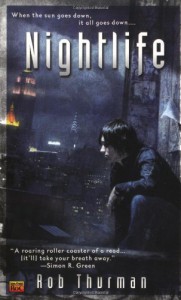 Different take on urban/paranormal fantasy. Likeable characters, cool monsters, and a plot to destroy the world. What more do you need?
Different take on urban/paranormal fantasy. Likeable characters, cool monsters, and a plot to destroy the world. What more do you need?
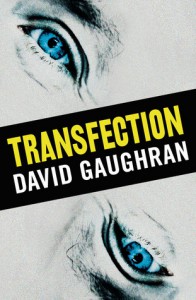 I felt completely betrayed by this. This isn't even a short story. It's a prelude to a novel - a novel that it appears the author has no intention of writing.
I felt completely betrayed by this. This isn't even a short story. It's a prelude to a novel - a novel that it appears the author has no intention of writing. It's one thing to write a story and leave the reader wondering what happens next, but in this case we get a story without any kind of conclusion, and a sense that even the author doesn't care what happens next.
It's a good thing it was only a waste of 15 minutes.
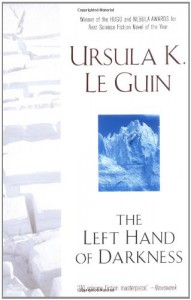 Interesting but ultimately disappointing.
Interesting but ultimately disappointing. Le Guin posits a society of genetically engineered humans who are hermaphroditic — being sexless at most times, but periodically entering kemmer where they may express either male or female attributes.
You'd think that she could make a great deal of this, but the main narrator is an outsider, who can't help but filter everything he sees through his masculine point-of-view. The only lessons I take from the story are that no matter how stable a society like this could be, it would eventually fail; and that without "men" there's no way we'll ever found an interstellar civilization.
The Moor's Last Sigh
 Utterly, eye-crossingly, boring. I got 100 pages in, and still all we've done is talked about the boring lives of his privileged mother, grand-parents and great-grand-parents.
Utterly, eye-crossingly, boring. I got 100 pages in, and still all we've done is talked about the boring lives of his privileged mother, grand-parents and great-grand-parents.
 Never mind. I've tried to submit this review to GR 4 times now, and the book isn't good enough to write it yet again.
Never mind. I've tried to submit this review to GR 4 times now, and the book isn't good enough to write it yet again.
 I love this sort of story. Good old space opera!
I love this sort of story. Good old space opera!It's just a rollicking good read, with interesting character studies of 4 different sapient species (humans and three others).
I'm a little disappointed in the treatment of the main female character, who despite being "Queen of the Universe" (that's just a joke one of the other characters makes) still seems to require a husband to validate her existence, and the portrayal of humanity as the smartest and most adaptable of the four species is jingoistic, but that's pretty much in the nature of this subgenre.
 For all that I love dogs and intend to always have at least one (and preferably more) dogs, I don't actually read many books about dogs and their behaviour. I think it comes down to [b:The Intelligence of Dogs|396926|The Intelligence of Dogs A Guide to the Thoughts, Emotions, and Inner Lives of Our Canine Companions|Stanley Coren|http://d.gr-assets.com/books/1347435296s/396926.jpg|517510], [b:Dogs: A Startling New Understanding of Canine Origin, Behavior & Evolution|715516|Dogs A Startling New Understanding of Canine Origin, Behavior & Evolution|Raymond Coppinger|http://d.gr-assets.com/books/1348327637s/715516.jpg|701768], [b:Inside of a Dog|6332526|Inside of a Dog What Dogs See, Smell, and Know|Alexandra Horowitz|http://d.gr-assets.com/books/1347980799s/6332526.jpg|6518250], and now this.
For all that I love dogs and intend to always have at least one (and preferably more) dogs, I don't actually read many books about dogs and their behaviour. I think it comes down to [b:The Intelligence of Dogs|396926|The Intelligence of Dogs A Guide to the Thoughts, Emotions, and Inner Lives of Our Canine Companions|Stanley Coren|http://d.gr-assets.com/books/1347435296s/396926.jpg|517510], [b:Dogs: A Startling New Understanding of Canine Origin, Behavior & Evolution|715516|Dogs A Startling New Understanding of Canine Origin, Behavior & Evolution|Raymond Coppinger|http://d.gr-assets.com/books/1348327637s/715516.jpg|701768], [b:Inside of a Dog|6332526|Inside of a Dog What Dogs See, Smell, and Know|Alexandra Horowitz|http://d.gr-assets.com/books/1347980799s/6332526.jpg|6518250], and now this.Not terribly surprisingly, Hare references the latter two (quite frequently) and Coren gives this book a glowing review on the cover (I'm a little surprised that he didn't get referenced in the text - though he might be in the bibliography, but [b:The Intelligence of Dogs|396926|The Intelligence of Dogs A Guide to the Thoughts, Emotions, and Inner Lives of Our Canine Companions|Stanley Coren|http://d.gr-assets.com/books/1347435296s/396926.jpg|517510] is pretty much a pop-science book, short on the real science.
I was a bit dismissive of this book when I first heard of it, because it sounded like he was covering a lot of the stuff from Coppinger, but I got over it because, first, he clearly respects Coppinger, and second because he doesn't come across as a know-it-all scientist at all. One of the things I really loved was that after first telling his faculty advisor (talking about the amazing things that infant humans could do) "I think my dog can do that", and going ahead to show that his dog could do that, proceeded to give us all the dead-end research he did: "so we hypothesized that it was this, and that was wrong..."
The only down side is that, despite the title ... my current dog is not smarter than I think. She's unfortunately been damaged beyond repair by a previous owner. On the positive side, I'm pretty sure the cat isn't as smart as he thinks!
 I read these mystery/thrillers set in foreign lands as much for the insight into another culture as for the mystery, so this novel was a disappointment when I learned almost nothing about North Korea. It's an authoritarian system. Great. I didn't even get much of a sense of "asia-ness" about it. As for the actual mystery - nobody actually seemed to care about the "Corpse in the Koryo" hotel, and it's solution was a throwaway at the very end.
I read these mystery/thrillers set in foreign lands as much for the insight into another culture as for the mystery, so this novel was a disappointment when I learned almost nothing about North Korea. It's an authoritarian system. Great. I didn't even get much of a sense of "asia-ness" about it. As for the actual mystery - nobody actually seemed to care about the "Corpse in the Koryo" hotel, and it's solution was a throwaway at the very end.

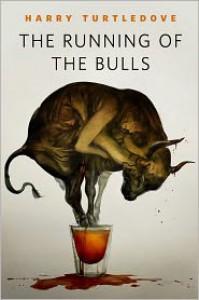 An interesting Hemingway-ish story about an Englishman (who isn't either English or a man), in a Europe that isn't Europe, going with his friends (who aren't, really) to Pamplona (ditto) to see the running of the bulls - which are of course, not bulls.
An interesting Hemingway-ish story about an Englishman (who isn't either English or a man), in a Europe that isn't Europe, going with his friends (who aren't, really) to Pamplona (ditto) to see the running of the bulls - which are of course, not bulls.About the only things in the tale that are what they seem are the trout (I think) and the rat (I'm sure).
 This is why I read [a:China Miéville|33918|China Miéville|http://d.gr-assets.com/authors/1243988363p2/33918.jpg]!
This is why I read [a:China Miéville|33918|China Miéville|http://d.gr-assets.com/authors/1243988363p2/33918.jpg]!I recently finished [b:The Scar|68497|The Scar (New Crobuzon, #2)|China Miéville|http://d.gr-assets.com/books/1320435192s/68497.jpg|731674] and was thoroughly disappointed, giving it the lowest rating I've given to one of his books. So, I felt I just had to jump into [b:Embassytown|9265453|Embassytown|China Miéville|http://d.gr-assets.com/books/1320470326s/9265453.jpg|14146240], and loved it from the start.
SF is full of "aliens", but for the most part they're odd-looking humans, or at least "people". They're not really all that alien. Miéville's Ariekei are not only completely alien, he never even really clearly describes their appearance - it just isn't that important.
The Ariekei have a unique form of language - so unique, it's called Language! Each of the Ariekei speaks with two voices simultaneously, and is incapable of even understanding that a single voice can actually be Language. [b:Embassytown|9265453|Embassytown|China Miéville|http://d.gr-assets.com/books/1320470326s/9265453.jpg|14146240] delves deeply (and at times almost opaquely) into the meaning of meaning, from semiotics into semantics, and into the difference between simile and metaphor. Along the way, we're asked to take sides on the fall from grace in the Garden of Eden - are we (or the Ariekei) better for the knowledge of Good and Evil, or worse? Miéville's position is clear, and I stand with him.
It's not an easy read, especially the later chapters, but it's well worth every ounce of effort you put into it.
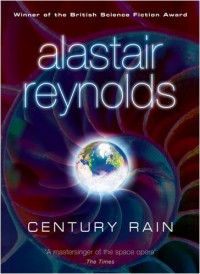 An interesting example of both post-apocalyptic and alternate-history SF - because we have two Earths, one in which World War II didn't happen, and one 300 years from now after plagues wipe out all life on our Earth.
An interesting example of both post-apocalyptic and alternate-history SF - because we have two Earths, one in which World War II didn't happen, and one 300 years from now after plagues wipe out all life on our Earth.However, it has a few really annoying problems. In the first place, the central character, Verity Auger is an archaeologist. Well, when you are going to rely on focus on a field, you'd better try to avoid anachronisms. Diamond styluses were not in general use in the same period when shellac records were being produced. That was just one of many.
Then, Verity is a terrible Mary Sue. At one point, Floyd (from 1959 Earth) volunteers to fly a spaceship - and is laughed at - but nobody has any problem with Verity flying it, even though she knew no more about such things than Floyd before her one previous flight. In fact, he's told "You can begin by telling me what you already know about matter/exotic matter coupling parities..." Really? At the beginning of the story, Verity barely even knew more than that such things exists, but apparently she's still expert enough to fly this ship. Give. Me. A. Break.
But the most evil problem with this book is that, while it can stand alone, it is clearly intended as book 1 in a series, and I absolutely hate getting taken in like that.




